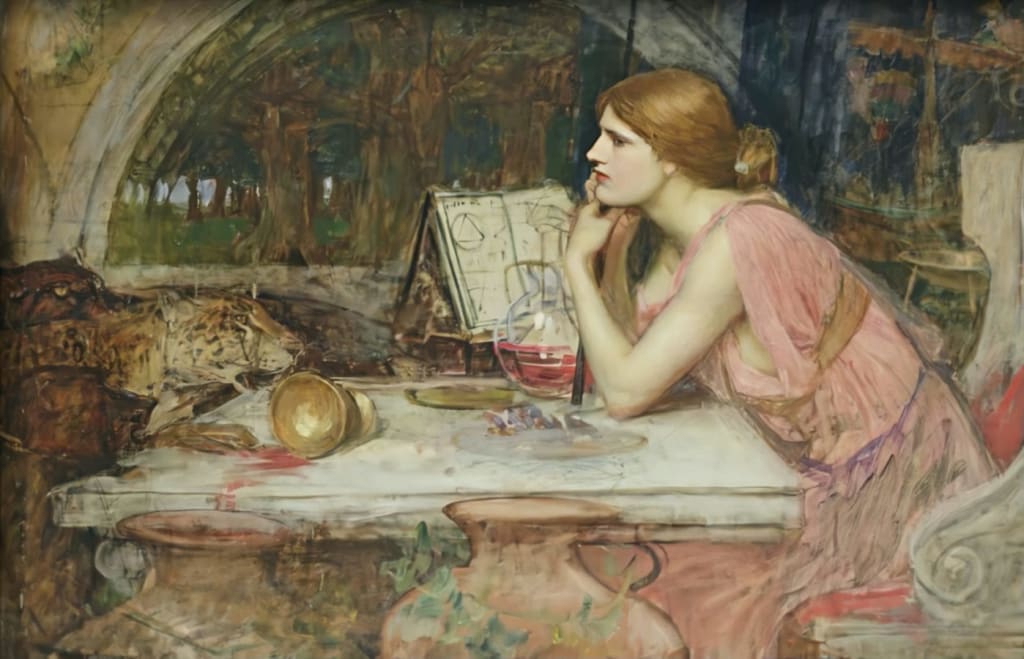Nine Greek Words for Love
Are there different types of love?

Think about words as bottles where we store feelings. For example, there is a Greek word to “bottle” obsessive and selfish love. There’s also a word for that serendipitous chemistry between two human beings. A word for that feeling that triggers endorphins and love chemicals all over our brain.
Have you ever wondered why friends last longer than relationships? I have. The answer could be on the type of love you are experiencing. Yes, there are different types of love. The Greeks described a whole spectrum of them by using their words to suggest all the shades.
1. Eros
Eros was in Greek Mythology, the son of Aphrodite, the God of love, passion, and desire. Eros is often described as a dangerous feeling due to its irrational nature. Eros (ἔρως) can take possession of your mind and drive you to lose control.
It is a selfish type of love, mainly because it’s looking for its own benefit through someone else, and its goal is to indulge one’s pleasures and desires. It manifests through heated episodes of romantic love, and low episodes of soul satisfaction. The Greeks considered Eros a shallow love, and it is associated with infatuation and romantic love.
You may recall feeling it at the beginning of “something.” Like when you can’t have enough of that person, and your mind is continuously wandering, or the birds sing around you, and everything looks promising. Yep, that’s Eros for you; with its tricks, Eros will make you think that your life is incomplete without certain someone. It will even convince you that “happily ever after” is the norm, and that there’s probably something wrong about you, and that’s why you haven’t achieved it.
The problem with romantic love, as we call Eros in these modern times, is that its goals are unreal. It does not involve commitment because it gives more importance to the emotions flowing around. Its happiness comes from immediate satisfied desires. With Eros, you love through your body and your sexual drive.
2. Philia
Philia or affectionate love (φιλία), describes a type of love built through time. It’s about that deep connection that we may experience with friends or family. It is based on affection and love impulses; the thing with it is that it can get cold depending on the circumstances. It is not exclusive to lovers.
Through Philia, Greeks described different types of relationships that endure through time because both parties always brought their best, and does not involve Eros’ wild passion nor its shallowness. It generally takes place among equals. Through Philia, you love with your mind and refer to a close friendship. Its antonym is the word phobia.
3. Storge
The word Storge describes natural affection. A type of universal love based on helping and protecting others. It manifests through solidarity and empathy. We see it all the time in nature.
Storge or familiar love (στοργή) is the perfect word to describe the type of love that families feel for themselves, the love you have for your parents or children, and the affection that you still have for your childhood friends. This noun refers to the “natural or instinctual affection, as of a parent for a child.” Storge knows about sacrifice and forgiveness. It makes you feel safe. It is rooted in friendship and respect for others.
4. Ludus
The first stage of love feels like bubbles in our heads. We are flirtatious, the communication is playful, and you start enjoying the other person’s company. This is Ludus or playful love (Παιχνίδια), that part of a relationship where you start feeling comfortable enough to show your silly side.
Ludus also refers to playfulness. When we are dancing among strangers in a bar, and we let our bodies go to the rhythm of the music, that’s Ludus. The purpose of this Greek word of love is to name everything that can spice up our love life!
5. Mania
Mania or obsessive love (μανία) manifests as jealousy, violence, and co-dependence. It is an unbalance between Eros and Philia. It leaves you bitter and lonely. Mainly because you are focused on yourself, and not in others. Mania talks about obsession. It breaks love’s central premise of selflessness.
Psychiatry and psychology have coined the word; they use it to describe a frantic, hysteric, or extreme behavior. Mania triggers negative responses like jealousy or violence, and it has its roots in low self-esteem.
6. Pragma
The Greeks understood Pragma as mature and realistic love. It is a common type of love among couples with stable relationships. Pragma or enduring love (πράγμα) is about making commitments to help the relationship endure the problems through patience, maturity, and tolerance.
Pragma refers to genuine commitment. This type of love is a decision, as it relates to the fact that you should “choose love,” rather than “fall for it.” Through Pragma, love is a decision.
7. Philautia
Not to be mistaken with vanity. Philautia or self-love (φιλαυτία) describes the healthy type of love you have for yourself and that it’s reflected in your everyday life: how many glasses of water a day do you drink? Are you setting boundaries for others to respect you? How many times do you end up playing the “victim’s part”? This is linked directly to the amount of self-love that you possess.
Have you ever heard the phrase “love yourself”? There are several school philosophies out there that state that for us to be able to love others, we must be able to love ourselves. Now, this, as we can see in the description of these words, is not necessarily true. You can experience Ludos or Eros or Storge and still not love yourself.
We are taught that love is about selflessness, and that is a partial truth because even though it is about selflessness, we still need to learn to set boundaries. We can’t just put ourselves in the hands of strangers, and then wonder why they didn’t value us. Because of this, Philautia is essential in a relationship. It shows a healthy way to give your heart to others—one without expecting anything in return.
8. Agape
We could state that love Agape or unconditional love (ἀγάπη) is the most radical form of love. It talks about selfless love, a type of love that is extended and does not look for its benefit. It’s a type of love based on respect and admiration.
A kind of love that we decide, and because of this decision, it is not controlled by our feelings. It is always willing to serve and care for the other. Agape love is the kind of love that we expect from God, a type of unconditional love that heals us. Agape is also a synonym of selfless love. A love you feel in your soul.
9. Meraki
This beautiful adjective talks about the effort and creativity you place onto something. It represents emotions like passion or creativity flowing onto your work. Meraki (μεράκι) talks about the importance of liking what you do. It also describes the feeling you get when you are satisfied with a task. You could say that it is putting your soul and heart in your work.
Meraki observes our inner self, it is part of the Greek words for love, and it takes place when working out of love and creativity. It is a creative kind of love that the ancient Greeks related to our everyday life. More than a word, Meraki suggests a philosophy of life. As it needs a little bit of all the other words to take place: It needs Eros as part of the jump start you need to begin with a project and a little bit of Pragma. You will also need lots of Agape love because, through Meraki, you reach that level of happiness serving others with your work.
There is more than one way to love, as well as a million ways to express it, and different types of love. The key is balance. Too much of one of these different types of love can cause problems in your life, as emotions need to have a balance; if they’re not, your priorities may be blurry.
It seems like the recipe for long-lasting love is a combination of all these. We even dare to say that you should include a pinch of mania because we all need a little crazy and unpredictable in our life. Just a little, though, remember that above everything, love should make you happy and fulfilled!






Comments
There are no comments for this story
Be the first to respond and start the conversation.